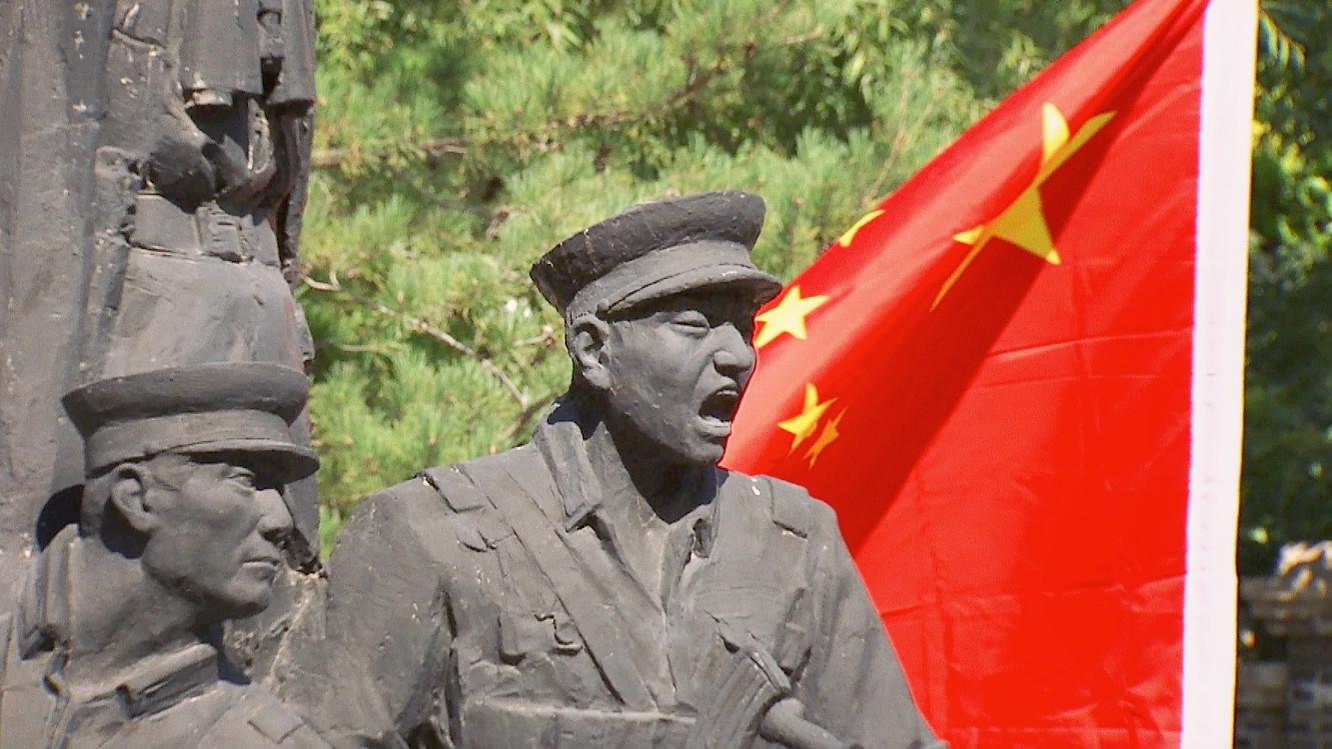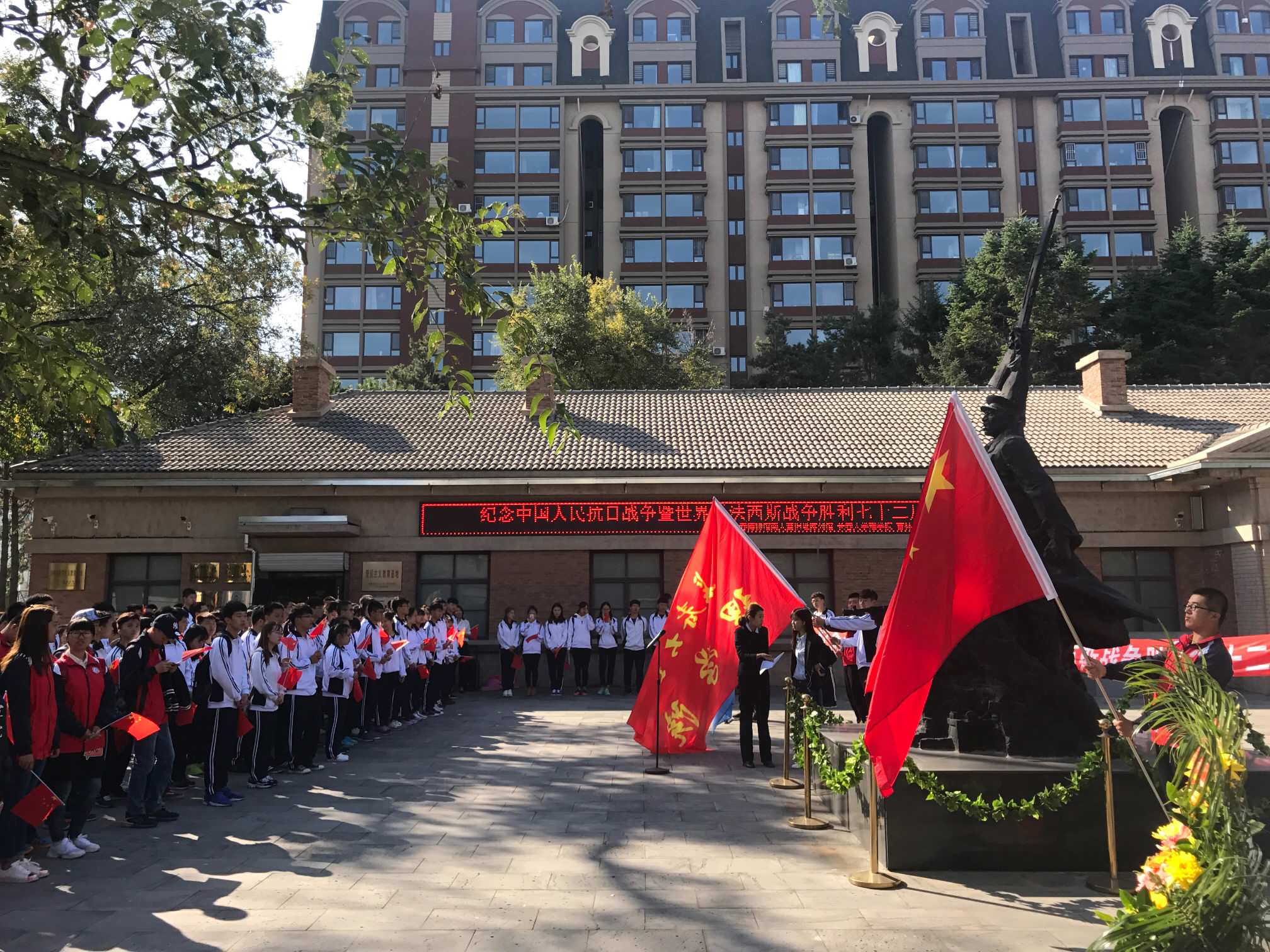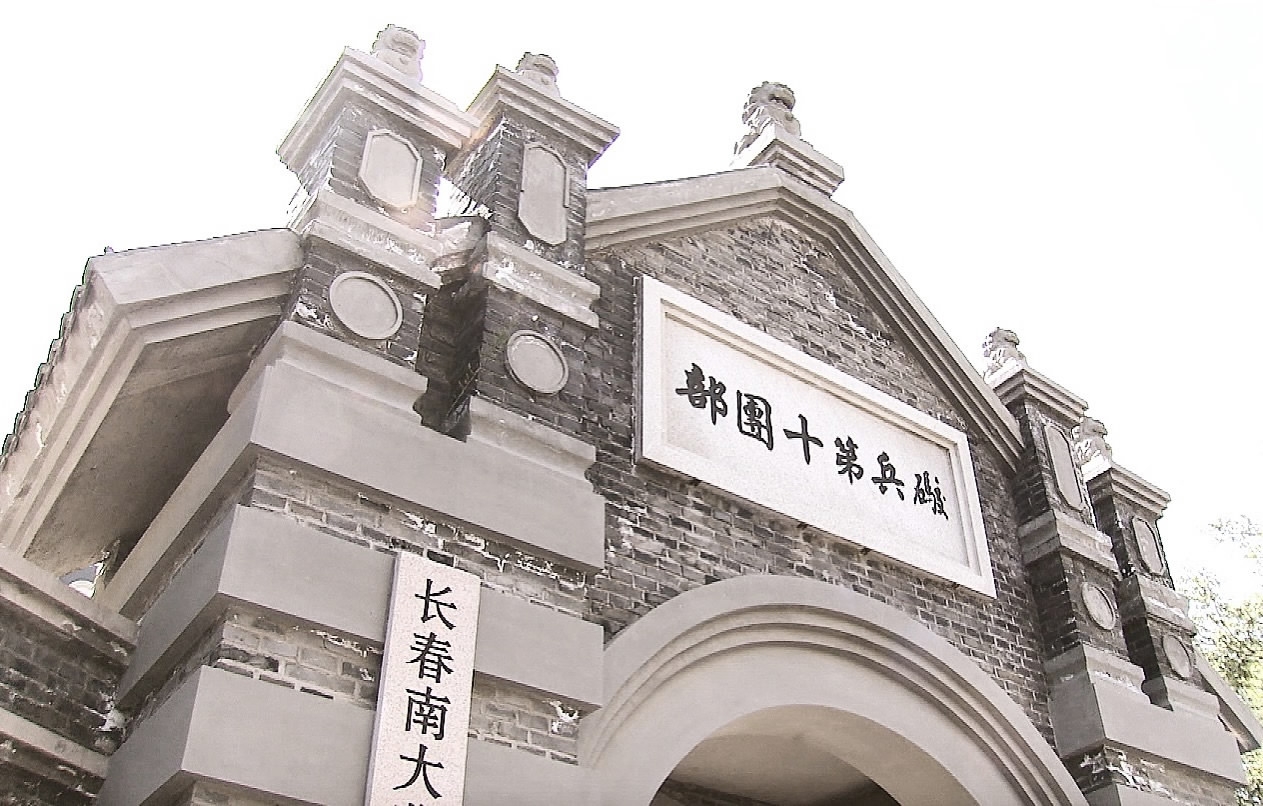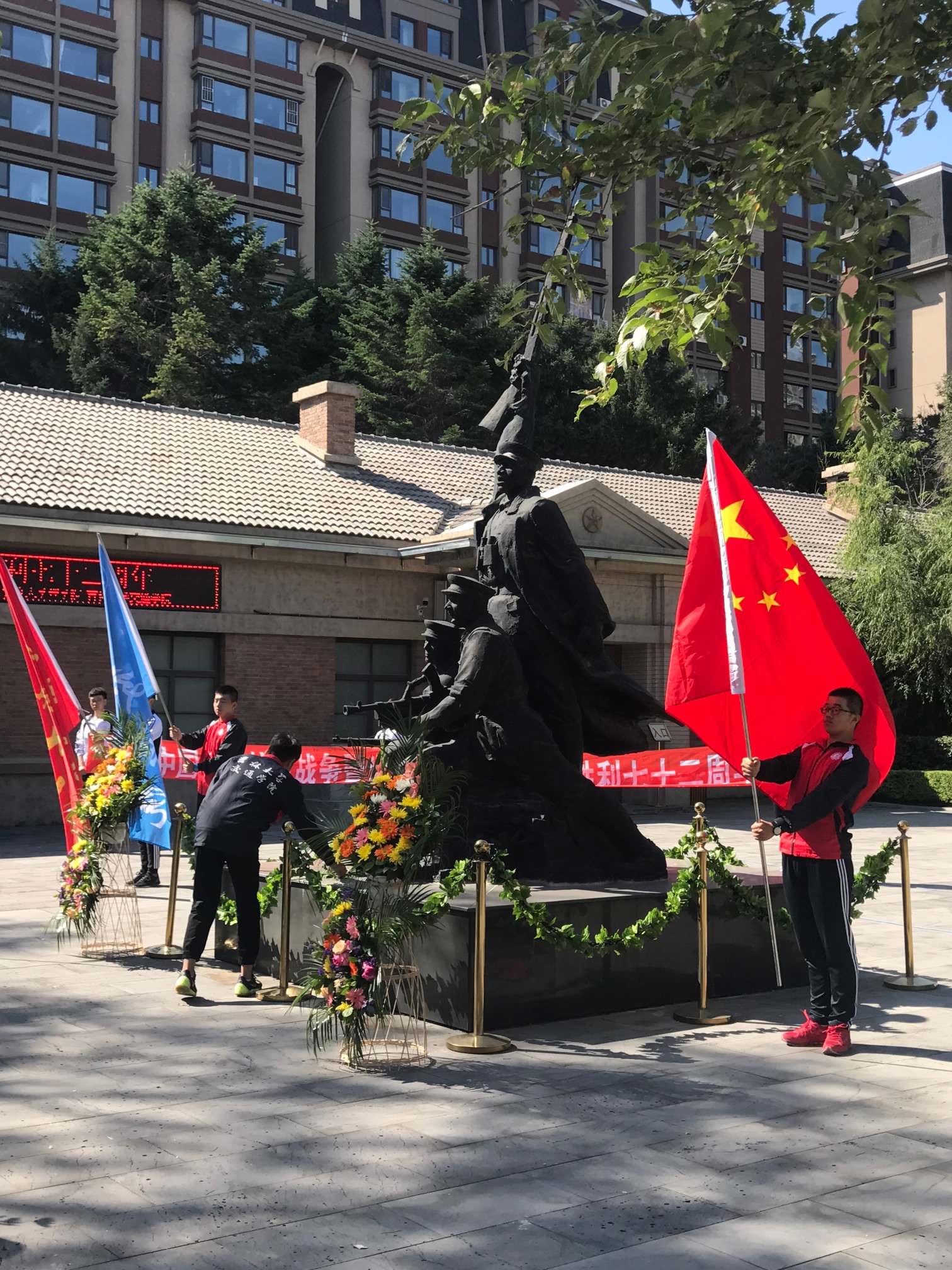
Culture
22:53, 03-Sep-2017
Changchun celebrates 72nd anniversary of ‘Victory Day’
By CGTN's Cui Hui'ao

Sunday marks the 72nd anniversary of the Chinese People’s War of Resistance Against Japanese Aggression.
At a commemoration ceremony in Changchun, Jilin Province, more than 100 college students conveyed their respects for the deceased by presenting flowers and sign names.

College students hold national flags conveying their respects for the deceased. /CGTN Photo
College students hold national flags conveying their respects for the deceased. /CGTN Photo
“Growing up in Jilin, I understand how much pain the invaders inflicted on northeast China. The historical lessons must be remembered by the entire younger generation,” said Zhang Ze, a student from Changchun University.
The ceremony takes place at the old site of “Big South Barracks", referring to the Nanling Barracks built here in 1907.

The old site of “Big South Barracks" / CGTN Photo
The old site of “Big South Barracks" / CGTN Photo
This site sits as a witness to the history of humiliation, hardships and frustrations. On the morning of September 19, 1931 – one day after the Mukden Incident – Japanese transferred troops to Changchun, invaded these barracks, killing and injuring more than 200 Chinese soldiers in the nine-hour battle.
Because of the “Don’t Resist” order by Xi Qia, who was the commanding officer of the Kirin Provincial Army, the barracks were eventually captured by the Japanese invaders.

A student presents flower basket to the statue. /CGTN Photo
A student presents flower basket to the statue. /CGTN Photo
At that time, the Nanling Barracks had more than 5,000 soldiers, yet they had to give in because of the “Don’t Resist” order.
"History teaches us that only with national unity and economic prosperity can tragedies like this be avoided," said Cao Dongyan, a history scholar, “we should also cherish peace.”

SITEMAP
Copyright © 2018 CGTN. Beijing ICP prepared NO.16065310-3
Copyright © 2018 CGTN. Beijing ICP prepared NO.16065310-3